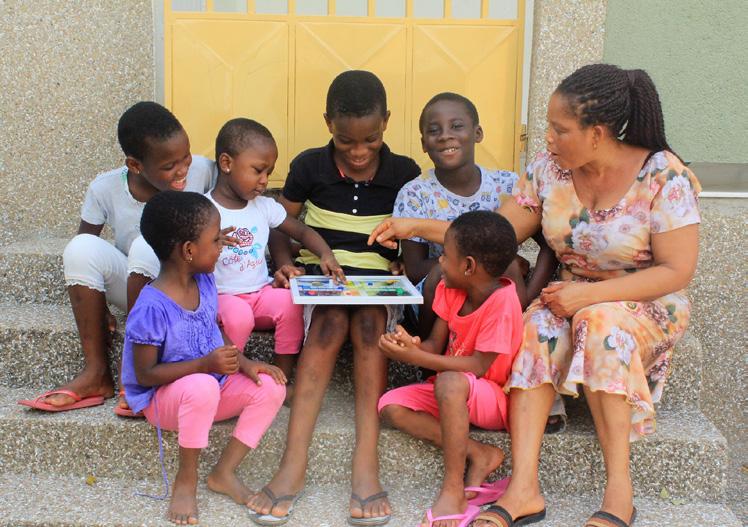THE FAMILY-STRENGTHENING PROGRAMME ASIAKWA Ghana DURATION: 2019 – 2023 TOTAL BUDGET: €132,248 – spent in 2020 €135,629
Project description
Main activities and results
The goal of this family-strengthening
• 807 vulnerable children from 243 families
programme (FSP) is to strengthen 300 families
are at this point admitted to the
at full capacity so they can continue to care for
family-strengthening programme and are
their 1,000 children. The key activities include
receiving various forms of support.
promoting children’s rights by raising awareness
• 150 caregivers received training and
and empower them to advocate for their rights
counselling in good parenting in the
as a child, at a family and community level, and
areas of home management, nutrition,
providing support for activities that generate
positive discipline, child rights and
income for caregivers and young people by
obligations and the various conventions
setting up Village Savings and Loan
of child rights and protection through
Associations. The programme facilitates: • Access to education for children;
training courses and workshops.
• 84 caregivers have been supported with
• Access to WASH by empowering local
grants through the Village Savings and
structures to improve the water supply,
Loan Associations as well as individual
sanitation and hygiene; • The empowerment of young people
grants.
• 150 caregivers acquired knowledge and
through basic life skills training including
skills in basic financial and business
entrepreneurial and employability skills,
management on how to increase and
technical training and the start up of
maintain a customer base, basic
income generating activities have been the
bookkeeping and savings.
main areas of intervention and focus.
• 87 young people were admitted to the FS programme bringing the total number of
Target group • Children aged 0-18 years at risk of losing
young people in the programme to 103.
• 90 young people were trained in core life
parental care, and families. Girls receive
skills topics such as effective communi-
special attention as they are more
cation, decision making and the basic
vulnerable to being kept out of school and
business cycle, identifying opportunities,
to domestic violence and abuse.
planning and self-esteem, all gearing
• Disadvantaged young people aged 18-25
towards the self-confidence and
years, for example young people who are
self-resilience of young people and
unemployed or underemployed.
helping them stay relevant on the job market.
Sustainable Development Goals
• 21 young people were supported with start-up business capital and are now earning a regular income to support themselves and their families.
18 | SOS CHILDREN’S VILLAGES ANNUAL REPORT 2020






















